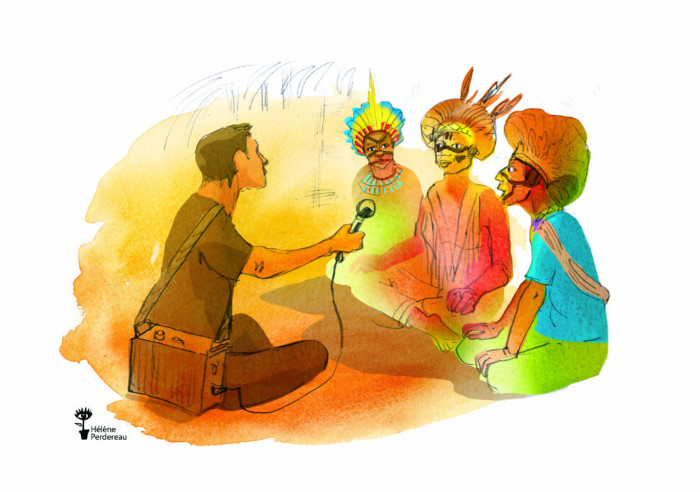Thydêwá, Hope of the Earth

By Sebastián Gerlic
Originally published in Letter to Friends Around the World N° 109
I was born in Argentina but moved to Brazil when I was twenty-five. I was attracted to the wisdom and spirituality of the most wounded peoples. However, my life changed when Brazil and Portugal celebrated the 500th anniversary of the “discovery of the Americas”. Three thousand people took to the streets to protest, and the government opened fire. When I heard the cries, the violence and despair, I decided to stop working in advertising and do something else with my life.
In the capital city, I met indigenous peoples selling crafts representing their cultural heritage. I suggested taking photos of them and sharing these photos with children who knew nothing of their way of life. The children asked incredible questions: “Do they dress like this every day?” “Do they have motorbikes in their village?” Violence is caused by ignorance, so it is essential to explain to children the wisdom of these peoples and their 200 different languages…
I came across the Pankararu people while writing a book. We went to the village with notebooks, video cameras and tape recorders and asked, “If you could speak to the world, what would you say to help reduce ignorance and promote peace”?
This is how Thydêwá, which means “Hope of the Earth”, was born. Four of the five founders of our organisation are indigenous.
We connected the internet to the villages, allowing villagers to communicate their knowledge and experiences with other people. This also enabled each community to collectively write an online book depicting their own unique culture.
Today, we also work with indigenous peoples from other countries on the continent. Using our digital “Fogones”, which means households, it is as if we are sitting together around the fire discussing our lives. Each community brings their different history and traditions. During the meetings, we always ask: “What is the richness you possess that you want to share with the world?”
Indigenous peoples are often excluded from national policies. They are generally “uncontaminated” by a global paradigm that fosters extreme poverty: greed, individualism, and capitalism. Their richness comes from knowing how to share, care for each other, and feel united with Mother Earth. If we could take this richness from the indigenous peoples, spread it to the whole world, we could end extreme poverty.

